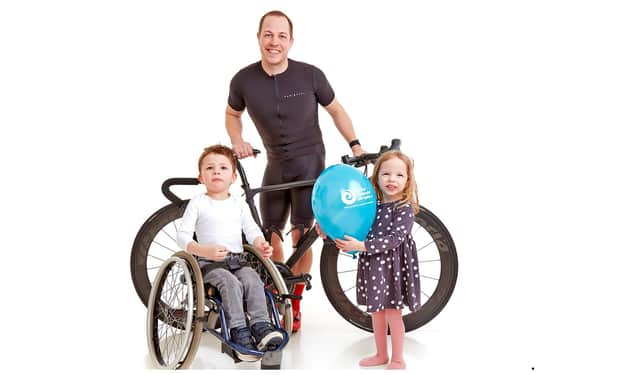The extra blood test that can spare untold misery - Sue Webber


She and her husband fought an uphill battle for a diagnosis and eventually their worst fears were confirmed when they were told Nathaniel had a rare and incurable genetic condition affecting spinal motor nerves called spinal muscular atrophy (SMA), which, unless caught early, results in progressive muscle wasting and weakness.
Now five, Nathaniel is an inspiration. He’s happy, has a sharp sense of humour and like most boys his age he’s looking forward to starting primary school after the summer, but with the most severe form of SMA, Type 1, he needs a brace to sit upright and a ventilator keeps him breathing when he’s asleep. Dedicated professional carers are always on hand to help.
Advertisement
Hide AdAdvertisement
Hide AdI met him and his mum in the Scottish Parliament last week, as part of a campaign by the support charity SMA UK to persuade MSPs to have SMA added to the routine blood spot tests for all newborns.
The clock can’t be turned back for Nathaniel, but approved treatments can halt progression and manage the disease, yet SMA tests are only done if a sibling has the condition or if, like Nathaniel, they show symptoms.
If symptoms are present, the damage can only be controlled and the effect of unnecessary delay is devastating. But if treatment starts immediately, there might never be symptoms at all.
The stark proof came in a video of two sisters, the elder diagnosed with SMA at six months and she too is in a wheelchair with a spinal brace. Her parents took the brave decision to have another child, but their new daughter was screened immediately, she tested positive, and treatment started at only ten days old.
Advertisement
Hide AdAdvertisement
Hide AdWe saw her running alongside her big sister in her wheelchair and she will live a normal life, but it was heart-breaking to know that a simple test could have given the older girl, and Nathaniel, a normal life too. It moved me to tears.
Of the nine conditions the blood spot tests are currently used to detect, two have odds of 1:100,000 and 1:150,000, but with approximately one in 16,000 British babies born with SMA, the case for making SMA the tenth is to me inarguable.
It’s true the extra test will cost money, but the cost of round-the-clock care for someone with SMA is around £500,000 a year, so surely it fits both financially and philosophically with the principle of preventative medicine.
As Bernadette was trying to work out what was wrong with Nathaniel and suspected SMA was the cause, I could only imagine the terror of then finding out the condition could be fatal, and we have a chance to prevent any other parent having to go through the same ordeal.
Advertisement
Hide AdAdvertisement
Hide AdUnfortunately, only two other MSPs were able to meet her and Nathaniel last week, but I’m sure if all MSPs were aware of the damage this condition causes and how easily it can be prevented, the test would be introduced tomorrow. So, let’s get it done this year.
If a country torn apart by war like Ukraine can introduce SMA screening, there really is no excuse.
Sue Webber is a Scottish Conservative Lothian MSP
Comment Guidelines
National World encourages reader discussion on our stories. User feedback, insights and back-and-forth exchanges add a rich layer of context to reporting. Please review our Community Guidelines before commenting.